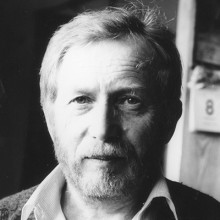Polish literature

Piotr Wojciechowski
Born in Poznan in 1938, he is a novelist and writer of short stories, film director, author of children's books, and a journalist who writes about cultural matters. Wojciechowski graduated from Warsaw University in journalism and from the State Film School in Lodz in directing. He obtained the 1978 Koscielski Prize. Piotr Wojciechowski lives in Warsaw.
His first book was The Stone Bees (1967), which won the acclaim of critics (the Wilhelm Mach Prize) and readers. It introduced Wojciechowski's characteristic prose diction. Written in epistolary form (or perhaps as a pastiche of the form), it featured a protagonist for whom reality featured a flowing interchange of elements derived from various parts of the world. Wojciechowski consistently used such literary means as pastiche and quotation, and deliberately yoked different stylistic conventions together (such as the psychological novel and the spy thriller). He dealt freely with the realities of history and manners, creating an impressionistic prose with its own vision of the world. The coexistence of different temporal frameworks seemed to be an attempt at encompassing Polish tradition in the form in which it exists in the popular consciousness. This involved a wealth of stereotypes and borrowings from various literary conventions and styles. As a critic suggested in the 1970s, Wojciechowski writes not so much about reality as about the way we perceive reality through literature. Such a reading can also be applied to a certain extent to Wojciechowski's novel, the 1996 Harpoonist of the Abyss.
In my books I simply invite people to a table laid with a variety of dishes. Help yourselves, we'll have a talk, bit of a natter, and already someone has found something... Writing is an act not simply conscious. There is equally an installation of drains in your subconscious.
– Piotr Wojciechowski
BIBLIOGRAPHY
Novela and Short Story Collections:
- Kamienne pszczoły, Warszawa: Iskry, 1967.
- Czaszka w czaszce, Warszawa : Iskry, 1970.
- Ulewa, kometa, świński targ, Warszawa: PIW, 1974.
- Wysokie pokoje, Warszawa: PIW, 1977.
- Manowiec, Warszawa: PIW, 1978.
- Półtora królestwa. (Opowiadania beskidzkie), Kraków: WL, 1984.
- Obraz napowietrzny, Kraków: WL, 1988.
- Harpunnik otchłani, Warszawa: Odeon, 1996.
- Próba listopada, Warszawa: W.A.B., 2000.
- Doczekaj nowiu, Warszawa: Świat Książki, 2007.
- Serce do gry, Warszawa: Świat Książki, 2010.
Children's Books:
- Lew koloru marchewki, Warszawa 1971.
- Czarodzieje pachną klejem, Warszawa: KAW, 1976.
- Poniedziałek, którego nie było, Warszawa: KAW, 1977.
- Jezioro na wyspie, Warszawa: KAW, 1979.
- Autobus spóźnialskich, Warszawa: KAW, 1980.
- Wiatr schwytany w lustro, Warszawa: MAW, 1984.
Feuilleton:
- Prawo tyraliery, Warszawa: MAW, 1980.
TRANSLATIONS
French:
- Un crane dans un crane [Czaszka w czaszce], Losanna: L'Age d'Homme, 1988.
- Les conquerants du gateau aux niox [Zdobywcy orzechowego tortu] - Children's Book, Nathan, 1981.
German:
- Steinerne Bienen [Kamienne pszczoły], Frankfurt a.M.: Claasen Verlag, 1970.
- Der Schädel im Schädel [Czaszka w czaszce], Frankfurt a.M.: Claasen Verlag, 1973.